#travis chi wing lau
Explore tagged Tumblr posts
Photo




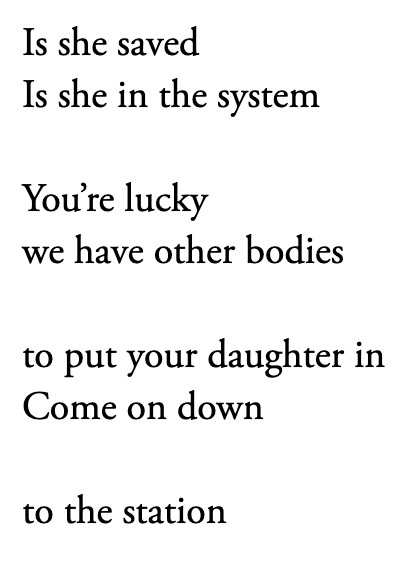

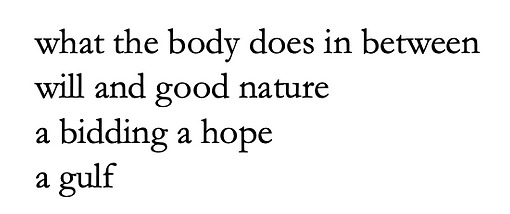
the body and the self
alan watts / ocean vuong / bodys, mother mother / body terror song, ajj / future biometrics, the cyborg jillian weise / bad road, leah lakshmi piepzna-samarasinha / in whch he attempts to breathe, travis chi wing lau
#the body#the self#disability#body#alan watts#ocean vuong#bodys#mother mother#body terror song#ajj#future biometrics#the cyborg jillian weise#bad road#leah lakshmi piepzna-samarasinha#in which he attempts to breathe#travis chi wing lau#song lyrics#poetry#queue.#my post.#answered ask#@wormwoodswork#thanks for the ask!
86 notes
·
View notes
Text
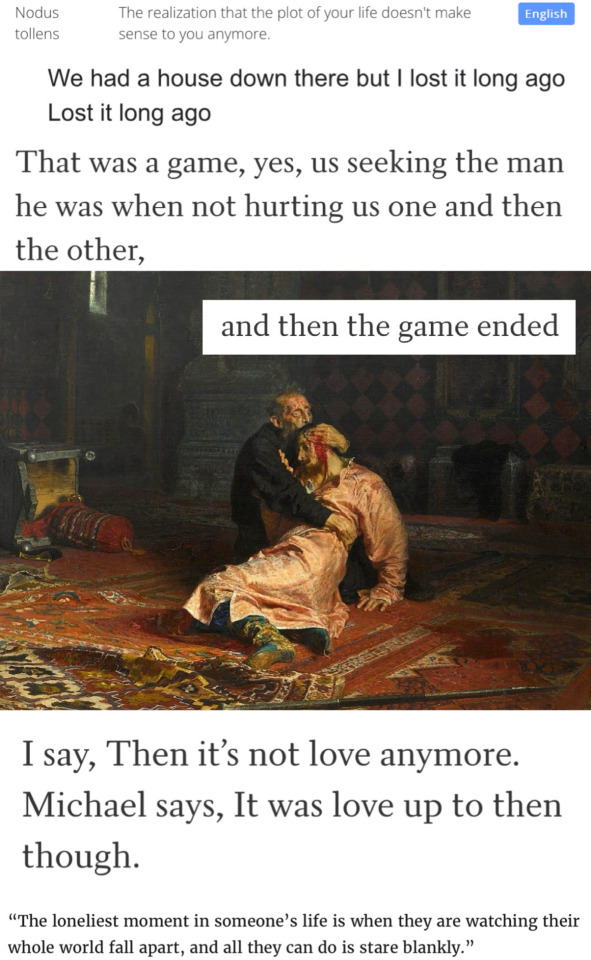

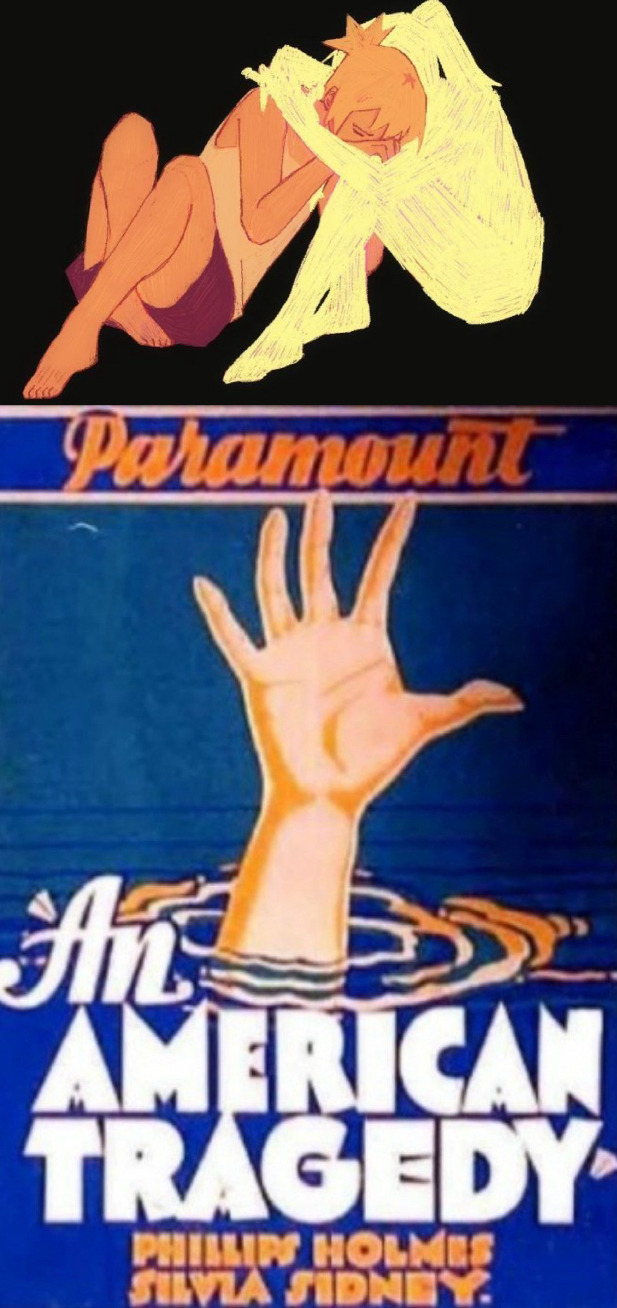


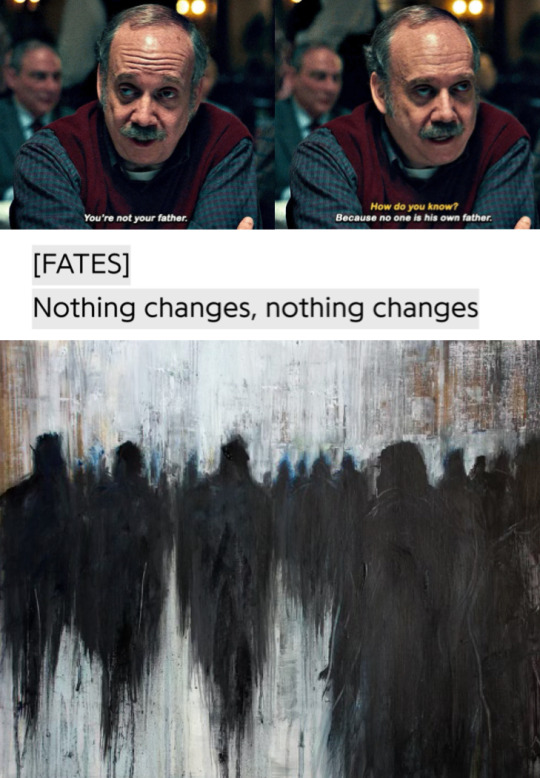

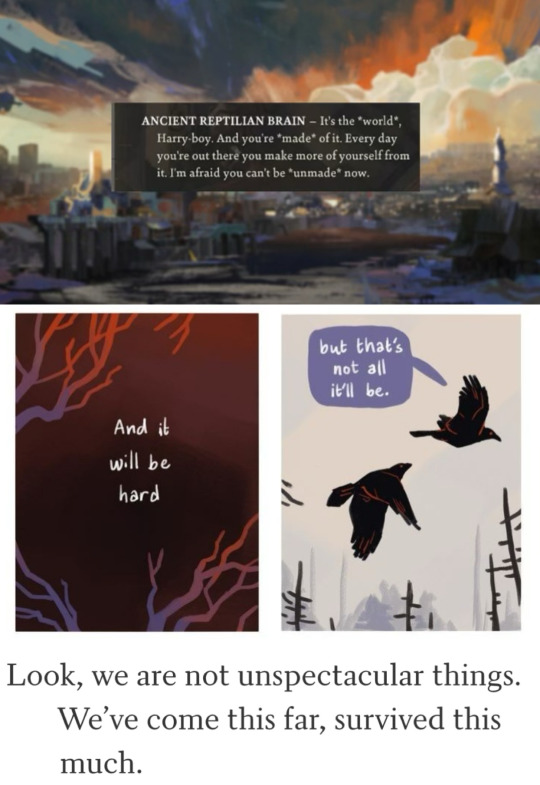
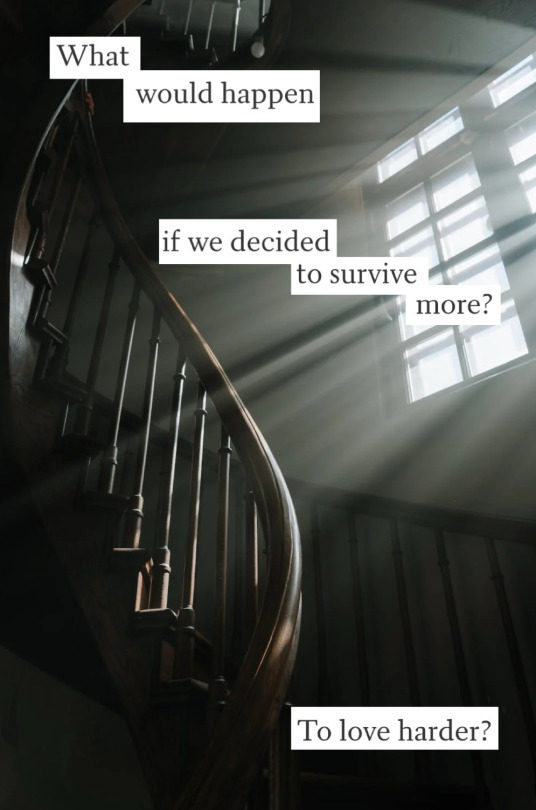
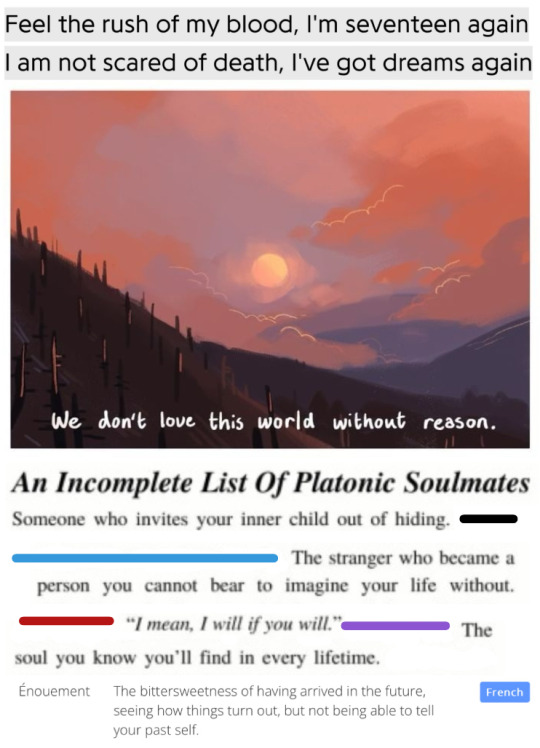
something in the static by @bonerot19
on the American tragedy, rivers, parents that loved you up until the time they couldn’t save you, friendship, Hamlet, the seemingly unending darkness at the end of the tunnel and then, nevertheless, the light.
nodus tollens definition, Eunoia / Sisyphus, Andrew Bird / THE NIGHT BEFORE I LEAVE HOME, Elisa Gonzalez / After the Movie, Marie Howe + Ivan the Terrible and His Son Ivan, Ilya Repin / The Great Gatsby, Francis Scott Fitzgerald / Grief Lessons: Four Plays by Euripides, Anne Carson + Van Gogh Never Watched The World Burn, Aja Trier / A Little Life, Hanya Yanagihara / @/bitsbyt3s on Twitter / An American Tragedy (1931) movie poster / Rivers, Nicolás Guilén + Ophelia, John Everett Millais / Funeral for Unreturned Ashes, Travis Chi Wing Lau / Homesick, Noah Kahan / “The world is a beautiful place,” Lawrence Ferlinghetti + Hamlet’s ‘Antic Disposition’, Reviews Rangs and Rambles / The Holdovers (2023) / Nothing Changes, Hadestown / Another Day, @/lesley-oldaker on devianart / Some days of wine and pastry, Samiya Bashir / First Light Last, Paul Mariani / Poster by Despair, Inc. / My Own Private Idaho, @bellamysgriffin / Disco Elysium / @catadromously / Dead Stars, Ada Limón + phot from pexels by cottonbro studio / The View Between Villages (Extended Version), Noah Kahan /@catadromously / An Incomplete List Of Platonic Soulmates, Molly Burford / énouement definition, eunoia
23 notes
·
View notes
Text
Obligatory Introduction/Pinned Post
Hi, I'm JA, a disabled queer cyborg, marine scientist, embroiderer, photographer, poet, and otherwise curious/creative person.
Tumblr was one of my internet homes years ago, but I haven't been an active poster in years here and decided to start over. The layout is definitely worse here now and idk how folks connect here these days, but if you somehow find me, please tell me.
Some Intro Info/Questions I'm Hoping Someone Might Want Answers To:
Where can I find your embroidery? You Can check out my tag on here #My Embroidery, and items are available for purchase in my shop, NonCompliantCyborg. You can also reach out for customizations and full on commissions.
Do you sell prints of your photography? Yes, I have archival quality prints available through InPRNT. If you really want one and have financial barriers, you can ask me for a discount code and I'll do what I can. You buying my art helps me pay my bills, so I appreciate whatever capacity you do that in.
Where can I find your poetry? If I share it here it will be in the tag #My Poetry. I currently have one chapbook, Request for Amendment which was reviewed in WordGathering. I also have work in HAD and Cool Rock Repository. I really need to submit more places, and would love if you send me reqs.
You have to pick one book to recommend, right now. What is it? I hate these kind of questions. But the book is Paring by Travis Chi Wing Lau.
You have to pick one essay to recommend, right now. What is it? "Anthropodermic Biblioplegy, disabled bodies, and who gets to have boundaries" by Karrie Higgins
You are listening to one song on repeat on the bathroom floor. What is it? Boreas by The Oh Hellos
What do you mean about being a cyborg? Here is one possible primer on cyborgs, by Cy Jillian Weise for Granta: Common Cyborg. Someone actually ask me, and I will say a lot more, and then link it on here too.
What's your favorite phylum? Ctenophora. Ask me why.
I want to see marine critters. Please help. #My Marine Biology Videos #taking myself to the water to remind myself I'm allowed to just exist
Where else can I find you online? I'm on Tik Tok @CtenophoreCreative and @NonCompliantCyborg on Instagram and BlueSky.
#intro post#embroidery#disability#cyborg#ocean#marine scientist#disabled#hello tumblr#new here#new artist
9 notes
·
View notes
Text
"From a narrative medicine standpoint, diagnosis sometimes helps to provide a framework for understanding the disorienting experience of disability. If disability and illness bring about forms of what Arthur Frank has called “narrative wreckage” in which an individual’s narrative of life is disrupted or broken, diagnosis thus offers a form of meaning-making that helps embodied sensation be understood toward new narratives of self."
...
"My students in my introductory seminar to medical humanities and disability studies asked the perennial question: what is the alternative then? I resonate deeply with queer and crip communities engaging in discursive acts of reclamation: to claim crip is an act of pride and empowerment, cripness is a political identity that exposes the ableist norms of a society never built for us in the first place."
...
"...fractured into the “episodic, not linear, a matter of intensities, sensations, and situations, not illness and cure” that Johnson so aptly describes of scoliosis. These shifting intensities, sensations, and situations are the stuff of my poetry, the conditions in which I write."
...
"...the difference is in precision..."
2 notes
·
View notes
Quote
A shot in the back is the present’s plain language. I learned from you that being a cipher could be a powerful desire.
Travis Chi Wing Lau, “A Lover Dead in His Twenties,” published in Glass: A Journal of Poetry
31 notes
·
View notes
Link
Painfully, Chen asks if it is possible to love what harms you. What Chen models for us in this volume is how to productively revisit certain pasts, however traumatic, with a tenderness, a loving that willingly suspends the convenient judgment of hindsight. As opposed to erasure or reparation of these traumas, Chen meditates on possibility of living with them: “Do I have to forgive in order to love? Or do I have to love / for forgiveness to even be possible? What do you think?”
The first review of the book is here!
A bouquet of thanks to Travis Chi Wing Lau for spending time with my words and for writing this lovely review.
And be sure to check out everything in the new issue of Up the Staircase Quarterly!
#Review#When I Grow Up I Want to Be a List of Further Possibilities#BOA Editions#Poetry#my poems#my book#Up the Staircase Quarterly#Travis Chi Wing Lau#my news#yay
4 notes
·
View notes
Link
“Interdependence is at the heart of Chen’s writing, and if we are to survive in these troubled times, we must continue to believe that there really are new ways to find the impossible honey.” - Travis Chi Wing Lau, on @chenchenwrites forthcoming When I Grow Up I Want to Be a List of Further Possibilities from BOA Editions.
4 notes
·
View notes
Link
Okay, I know that it’s nearing the end of disability pride month? But. Everyone. Should. Read. This.
@brightlotusmoon I think you might like this. And possibly @floozdooz, I remember you liked my Leo cane thing.
#disability pride#disabled pride#disabled#disability#disability pride month#queer author#disabled writer#disabled writers#poetry#disabled poetry#disability representation#ableism#chronic illness#prose writing#disabled art#disabled artist#disabled artists#queer writers#disabled queer#visual impairment#queer poetry#mobility aid#wheelchair#mental illness#physical disability#blindness#authors of color#disabled poc#service animal#disabled representation
11 notes
·
View notes
Link
“Today’s episode is about disabled teachers with Travis Chi Wing Lau and Dayniah Manderson.”
16 notes
·
View notes
Text
Pieces of writing I enjoy
I started this blog mostly to keep track of snippets of text that made me want to stare into the distance as indie movie music plays in the background, but there are some poems and articles and such that I don’t really feel like posting as a “quote”; so here they’ll go!
fire danger high today - Jaye Elizabeth Elijah
Glossolalia - Eugenia Leigh
By Your Hand - Haʻåni Lucia Falo San Nicolas Funeral for Unreturned Ashes - Travis Chi Wing Lau Once, While Disemboweling the Chicken - Isabella Desendi
0 notes
Text
“[Literary Scholar Julia Miele] Rodas’s own strategy of disorientation and defamiliarization involves queering the very terms of allistic communication by attending to how autism is registered in and through language. As opposed to dismissing textual moments that appear non-dialogic or illogical, she insists on inhabiting their disorderly, “unsettling quality” and “deceptively contained instabilities,” which, for Rodas, exemplify a particularly autistic aesthetic. In place of passive autistic silence is a din of ricochets, apostrophes, ejaculations, catalogs, and neologisms. She thus offers an autistic literary key for recognizing our own ableist reading practices — practices that tend to skip over or dismiss odd (read queer) patterns and cadences of language as rhetorical failures. In her book, literary case study after literary case study reveals not only autism’s rhetorical ubiquity but also the troubling ableist tendencies toward disciplining unruly language into more efficient forms. Fully aware of the scholarly norms of academic monographs that value concision, directness, and logical flow, Rodas deliberately eschews this in favor of a form of scholarship that overflows with rhetorical excesses that reproduce her own autistic forms of repetitive language.
If editorial practices can work to discipline neuroqueer forms of expression, Rodas also argues that neurotypicality is rampant in the discourse of poetics itself. If anaphora, for instance, is defined as a repetition of a sequence of words at the beginning of clauses for rhetorical emphasis and for certain pleasurable, predictable patterns in poetry, how does an autistic echolalia (repeating words and phrases), uninvested in meaning, queer this poetic device’s neurotypical application? Similarly, rhetorical “fallacies” like the non sequitur (Latin for “it does not follow”) are invalidated by their supposed flaw in logic, but a neuroqueer reading might ask why it is necessary to logically “follow” at all or who gets to determine what is logical. Given how cognitively disabled people have long been distrusted and disavowed, allistic rhetoric seems to be most in need of reimagining, if only to subject it and its norms to the same scrutiny as autistic rhetoric. Rodas’s project forces us to consider that “transparent communication is not always the exclusive business of language.”
-- Travis Chi Wing Lau, “The Poetics of Autism,” a LARB review of Authoring Autism by Melanie Yergeau and Autistic Distrubances by Julia Mile Rodas
0 notes
Text

FLP CHAPBOOK OF THE DAY: Reflections from the Front Porch by Mike Gill
TO ORDER GO TO: https://www.finishinglinepress.com/product/reflections-from-the-front-porch-by-mike-gill/
RESERVE YOUR COPY TODAY
Mike Gill is an associate professor of disability studies in the department of Cultural Foundations of Education at Syracuse University, USA. He is the disability studies minor advisor. Gill is the author of the book Already Doing It: Intellectual Disability and Sexual Agency (University of Minnesota Press 2015). He co-wrote, with Alexis Boylan, Anna Mae Duane, and Barbara Gurr, Furious Feminisms: Alternate Routes on Mad Max: Fury Road (University of Minnesota Press 2020). He also co-edited, with Cathy Schlund-Vials, Disability, Human Rights, and the Limits of Humanitarianism (Ashgate 2014). This is his first chapbook.
ADVANCE PRAISE FOR Reflections from the Front Porch by Mike Gill
This collection of poetry and poetic prose holds a beautiful word-sketch of a continuing world that surrounds us despite a smearing cloud of pandemic. Outside the boundaries of fear and lockdown, the narrator helps us escape to a parallel world where squirrels, foxes, maples and cicadas thrive with equal significance to the eyes that care to notice. And, despite the boundaries for lockdown social revolutions take birth in the human world that keeps questioning the rights and wrongs, revising the old thoughts. The question of solitude remains to be asked – When this will be all over will the recurring dream return?
–Tito Rajarshi Mukhopadhyay, author of multiple books including Plankton Dreams: What I Learned in Special Ed (Open Humanities Press)
Gill’s poems remind us how hope is a practice–a practice of the daily, the quotidian, the front porch. Part of this practice is learning how to notice and observe where national traumas intersect with individual ones. Reflections from the Front Porch implicates us because the collection refuses the convenience of looking away, of washing our hands of complicity. Gill invites us to think about how scale is felt and dangerous fantasies of distance, separation from what we think has no bearing on us but in fact actively constitutes our lives and our relations with others. And such relations are often non-human: mint, maple, cucumber beetles. Whole ecologies of hope, “beauty / in [their] lasting act[s].”
–Travis Chi Wing Lau, Assistant Professor of English at Kenyon College, author of Paring (Finishing Line Press)
Please share/please repost [PROMO] #flpauthor #preorder #AwesomeCoverArt #poetry
#poetry#preorder#flp authors#flp#poets on tumblr#chapbook#american poets#chapbooks#finishing line press#small press#book cover#publishers#books#poem#smallpress#poems#poets
0 notes
Link
<< But only a month before the publication of A Journal of the Plague Year, Defoe released a work of nonfiction on epidemics, one that traded the quotidian experience of London’s plague past with didactic advice about what to do when a plague arrives at your doorstep. The earlier work, burdened with the title Due Preparations for the Plague, as Well for Soul as Body: Being Some Seasonable Thoughts upon the Visible Approach of the Present Dreadful Contagion in France; the Properest Measures to Prevent It, and the Great Work of Submitting to It, reads, as the literary scholar Louis A. Landa suggested, like “a manual of instruction” for how to act before the time of plague. At the age of sixty-two, Defoe believed he had a moral responsibility to “encourage the great work of preparation” at the individual and national levels before the next inevitable disaster.
Recognizing the threats to the growing British Empire, Defoe admits that “we are not a nation qualified so well to resist the progress of such a distemper, or the entrance of it into our country, as others are.” The British bodily constitution, plagued by its own excesses of gluttony and consumerism, desperately required what Defoe calls “the best preventive remedies,” ranging from strict dietary regimens to daily prayer for spiritual penitence, which prepare the body and soul for epidemic crises. For governments, he calls for “national preparations” that emphasize the separation of the sick from healthy, with particular attention given to the poor, the imprisoned, and children as vulnerable groups.
While the pestilential devastation of the Black Death in the fourteenth century remained very much alive in collective memory, the British response to plague outbreaks remained ad hoc and inconsistent. Well before the isolation of the Yersinia pestis bacterium, transmitted from rodents to humans via infected fleas, plague was typically attributed to an “afflictive providence” of a wrathful God. This theory of divine punishment coexisted with notions of plague as a natural calamity whose origins were often uncertain. Even as medical and scientific writers attempted to posit rational causes for epidemics, such as miasmas or person-to-person contact, they still frequently reproduced this ubiquitous religious language surrounding plague. Due Preparations embodies epidemic theory at its moment of transformation in the eighteenth century by conceiving of plague as both corporeal and spiritual phenomena. >>
0 notes
Text
0 notes
Link
Cleared my throat and coughed in an elevator today and got my first ugly look from someone who clearly was afraid I had coronavirus. Because I'm petty, I decided to cough some more, and as they were leaving, I yelled "racism is more contagious."
— Travis Chi Wing Lau (@travisclau) February 8, 2020
0 notes
Audio
My reading of Sharp. by Travis Chi Wing Lau.
3 notes
·
View notes